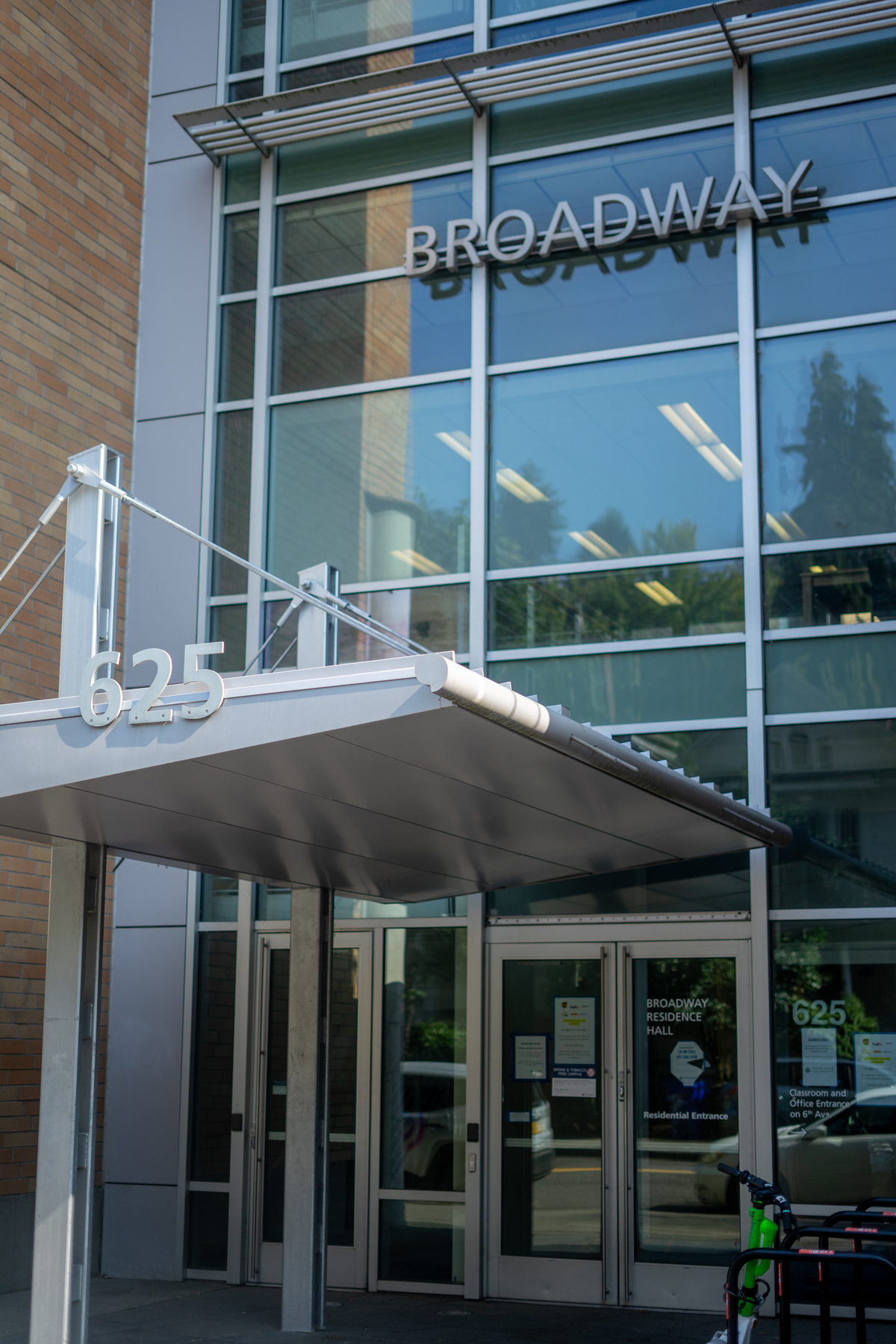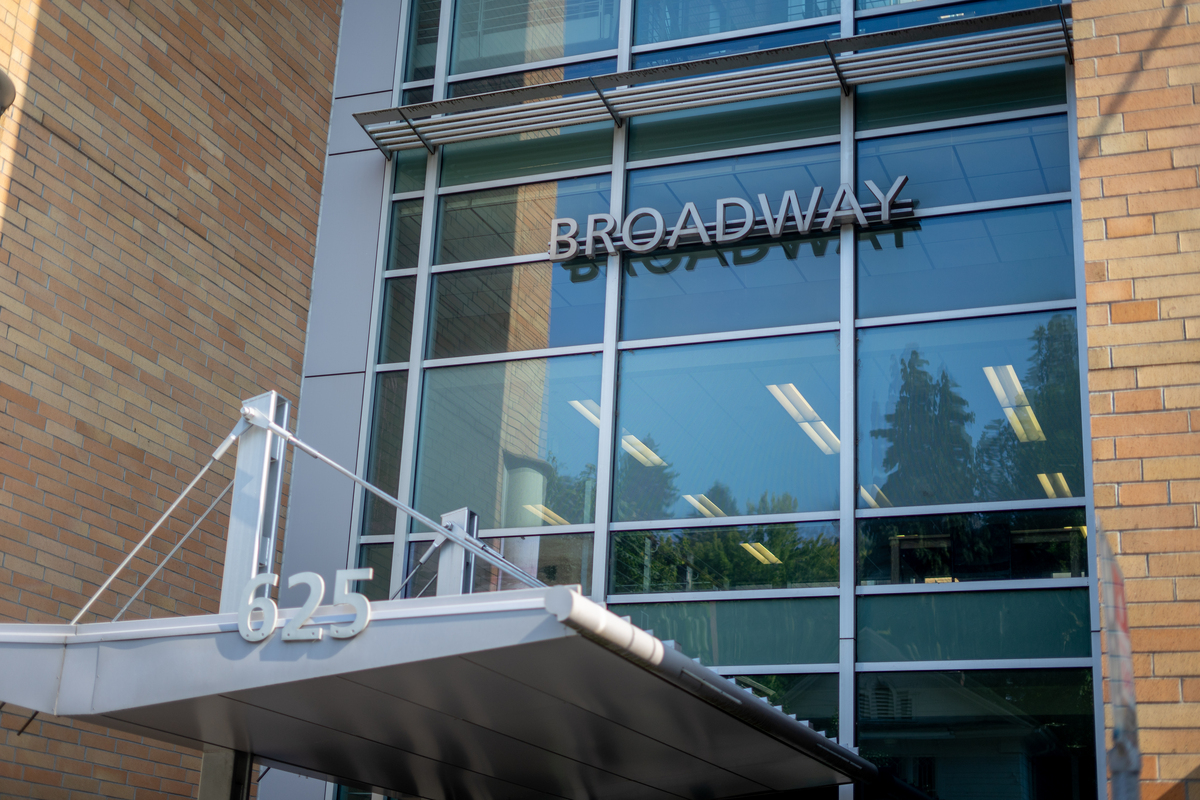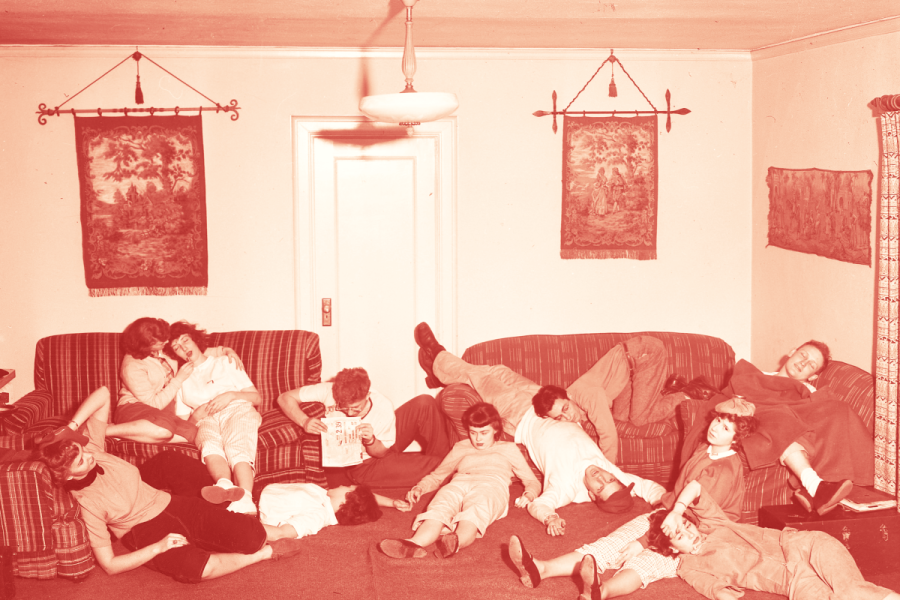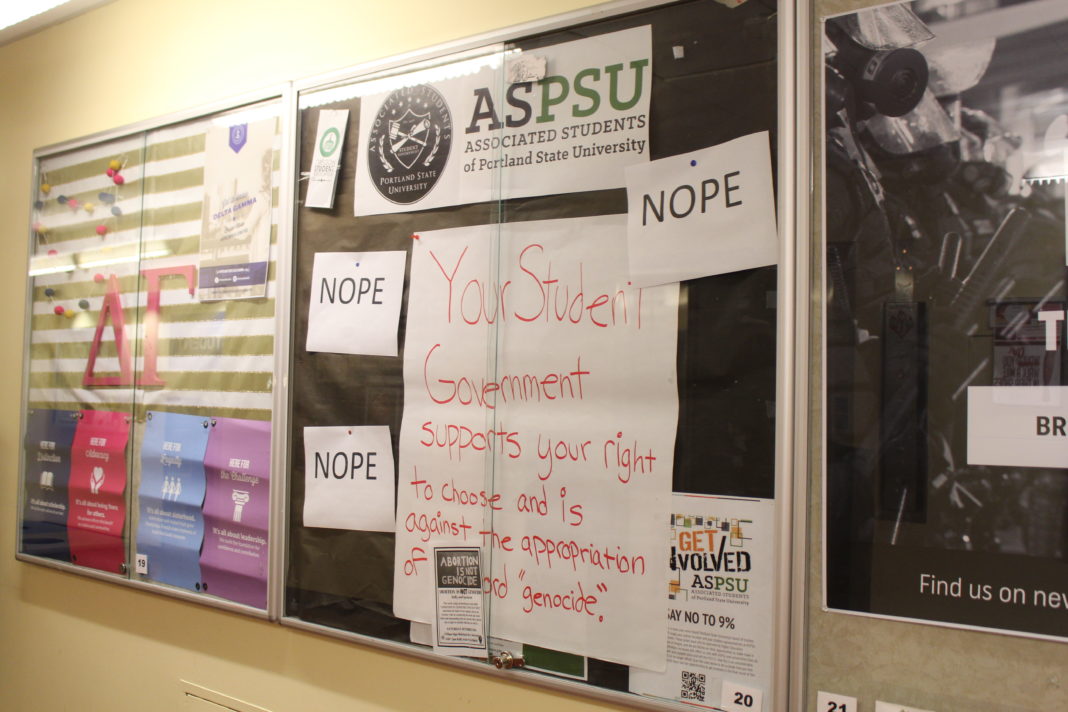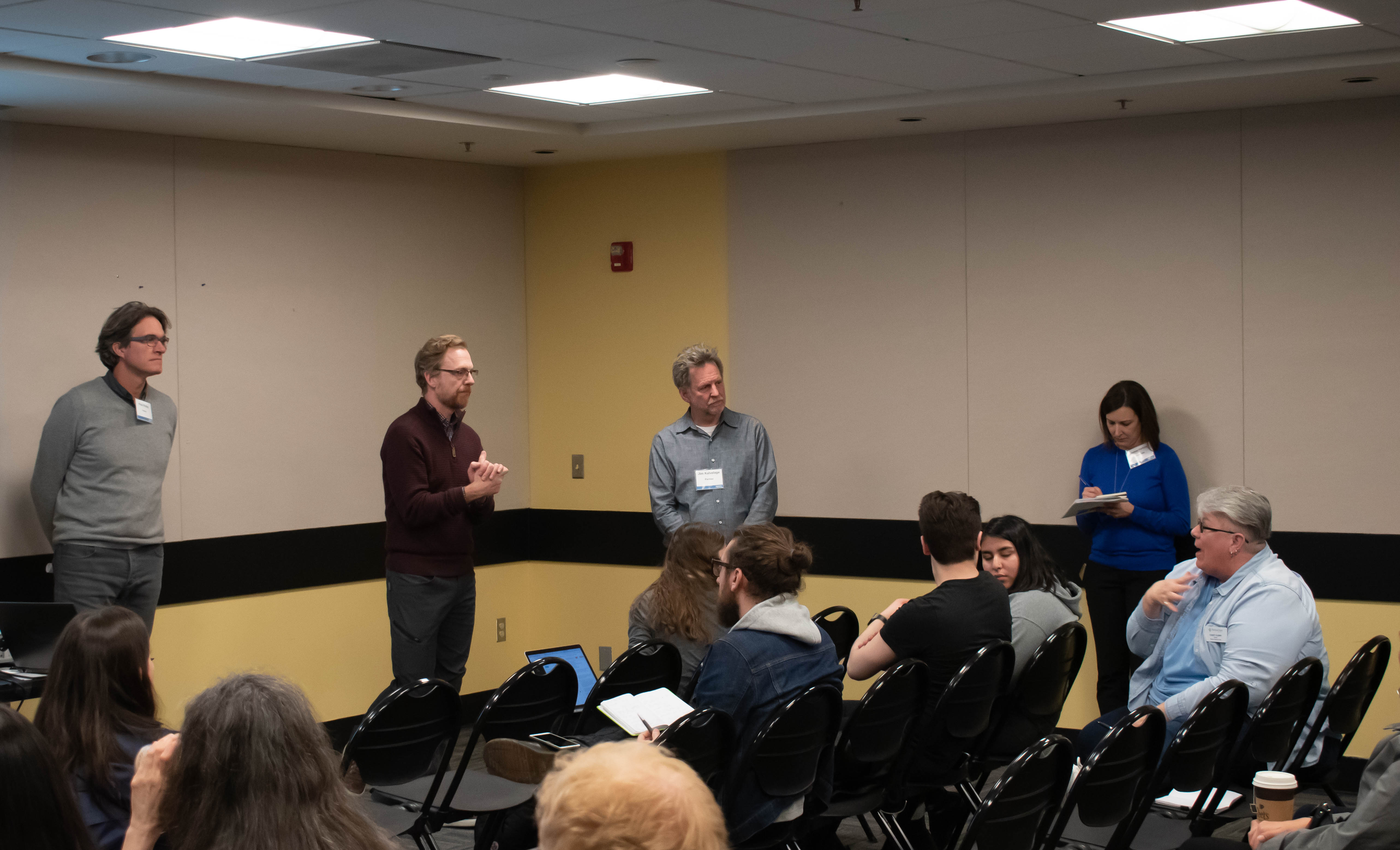It’s time for University Housing and Residence Life (UHRL) to change their outdated air conditioning policy.
As students living in campus housing probably already know, the 2022–2023 UHRL Housing Handbook prohibits the use of air conditioners anywhere within residence halls.
The housing policy only includes two short sentences about air conditioning. The first confirms that no residence halls have air conditioning, and the second states simply that “Air Conditioners are not permitted in the Residence Halls.”
The policy also prohibits evaporative coolers which “connect to a window, vent out a window, or require any adaptations to the window.” The reasoning behind this is unclear and not stated anywhere in the handbook.
Even after years of successive heat waves with summer temperatures looking to remain dangerously high in the coming years, Portland State has neglected to provide any cooling solutions for students living in university housing.
That’s not to say that PSU should undergo a full renovation of every residence hall, although some renovations shouldn’t be out of the question. Considering PSU’s $32 million budget surplus from the 2020–2021 fiscal year and the Board of Trustees’ $10 million start-up fund plus housing stipend for new President Ann Cudd, the university could afford to have done something by now.
As of now, the first-floor Blumel lobby has a large cooling unit running all hours of the day with a vent that blows out the window. This kind of window vent is precisely what the handbook prohibits, but that’s not the main point here.
If UHRL can provide a cooling system like that for the first-floor lobby, why can’t it do that for the lobbies on every floor? If students aren’t allowed to have air conditioning, the school should step up and provide an alternative.
As for students not being allowed air conditioning in the first place, UHRL owes it to students to tell us exactly why this policy is in place. We deserve to know the reasoning behind a housing regulation which has the potential to cause serious bodily harm to students during periods of extreme heat.
According to Multnomah County, the vast majority of the 72 Portlanders who died in the 2021 heat dome lived in households without air conditioning. Air conditioning is no longer a luxury in Portland—it’s a necessity. If UHRL is going to outright ban students from using their own air conditioning units, we deserve to have a say in what the alternative will be.
“[The air conditioning] policy and the [handbook] in general have existed for some time, and it is reviewed and updated annually,” said Ashley Wendler, executive director of UHRL. “Additionally, housing residents sign a housing contract and not a lease, which allows PSU Housing & Residence Life to have agreements that best work in an educational setting, including providing housing exclusive to PSU students.”
If the implication here is that a housing contract somehow exempts UHRL from the requirements of Oregon law, that’s mistaken. According to Oregon Revised Statute chapter 90 section 100 (ORS 90.100), a rental agreement is defined as “all agreements, written or oral, and valid rules and regulations […] embodying the terms and conditions concerning the use and occupancy of a dwelling unit and premises.” This includes leases but also any “week-to-week tenancy, month-to-month tenancy or fixed term tenancy,” the last of which plainly describes the terms of UHRL fixed-term housing contracts.
To clarify further, a tenant is defined by Oregon law as “a person, including a roomer, entitled under a rental agreement to occupy a dwelling unit to the exclusion of others, including a dwelling unit owned, operated or controlled by a public housing authority.”
A landlord is defined as “the owner, lessor or sublessor of the dwelling unit or the building or premises of which it is a part” or “a person who is authorized by the owner, lessor or sublessor to manage the premises or to enter into a rental agreement.”
UHRL is a landlord, students who live in UHRL residence halls are tenants and housing contracts are rental agreements. Calling it a housing contract instead of a lease is a distinction without a difference.
By any plain reading of the law, UHRL is bound by Oregon rental law the same as any other landlord, which includes the amendments to ORS 90 enacted by Oregon Senate bill 1536 (SB 1536).
“A landlord may not enforce a restriction on portable cooling devices against a tenant allowed under subsection (2) of this section unless the restrictions are in writing and delivered to the tenant,” states SB 1536, which came into effect in March 2022. “The written restrictions must include whether the landlord intends to operate, whenever there is an extreme heat event for the county of the premises, one or more community cooling spaces available to the tenant that are located on or near the premises and that maintain a temperature of not higher than 80 degrees Fahrenheit.”
Currently, the 2022–2023 handbook includes no reference to cooling spaces.
“[UHRL] air conditioner policy is based on the limitations of the electrical systems in the residence halls, some of which cannot support the electric pull of portable air conditioners,” Wendler said. “UHRL has had conversations with Facilities & Property Management this summer about how we can best allow air conditioners in the future, and we believe that next summer we will be able to allow air conditioners in multiple residence halls, although there are a number of details to navigate to ensure that residents with air conditioners are not negatively impacting other residents.”
One significant amendment which SB 1536 made to the Oregon rental code is an addition to the definition of uninhabitable residences. A rented space is required to have an electrical supply “of sufficient amperage to meet reasonable year-round needs for electrical heating and cooling uses.” These amendments to ORS 90.730 only apply to spaces in which “the electrical supply or electrical supply connection is replaced” after March 2022, but that does mean that PSU will have to come around eventually.
In the meantime, Wendler stated, “students with disabilities can work with the Disability Resource Center to determine if an air conditioner is a reasonable accommodation and possibly be approved to have an air conditioner in their unit.”
As I’ve written before, students shouldn’t be forced to disclose their health status to the university to have their basic needs met. Nobody—regardless of health status or disability—can stay healthy in a living space that is routinely heated above 90°F.
Student renters do not have any fewer rights than other renters just because they live in a university residence hall instead of an apartment. UHRL has had two years since the 2021 heat dome to act on extreme heat in their buildings, and the patchwork system of accommodations it’s pieced together is wholly inadequate for the task.
UHRL must work with students in good faith to update their buildings and amend the housing code before the next major heat wave. Otherwise, the next extreme heat death might come from one of PSU’s residence halls.
